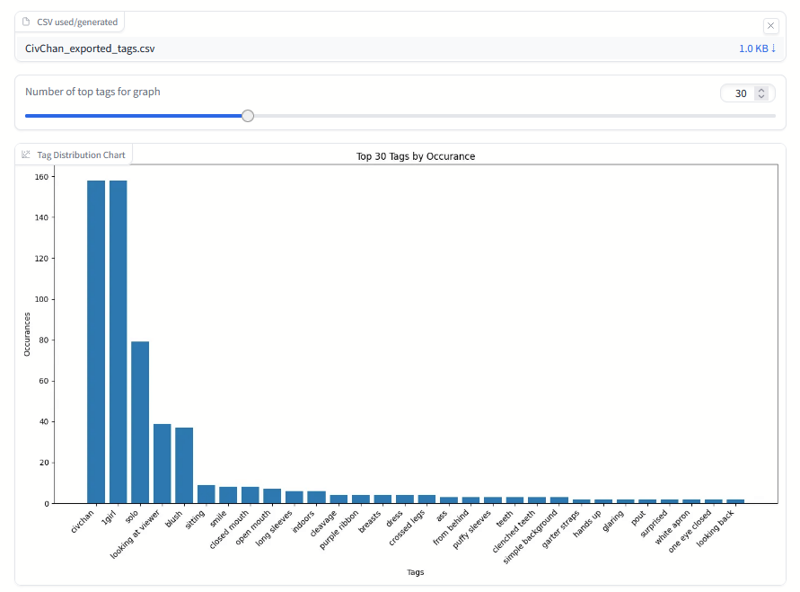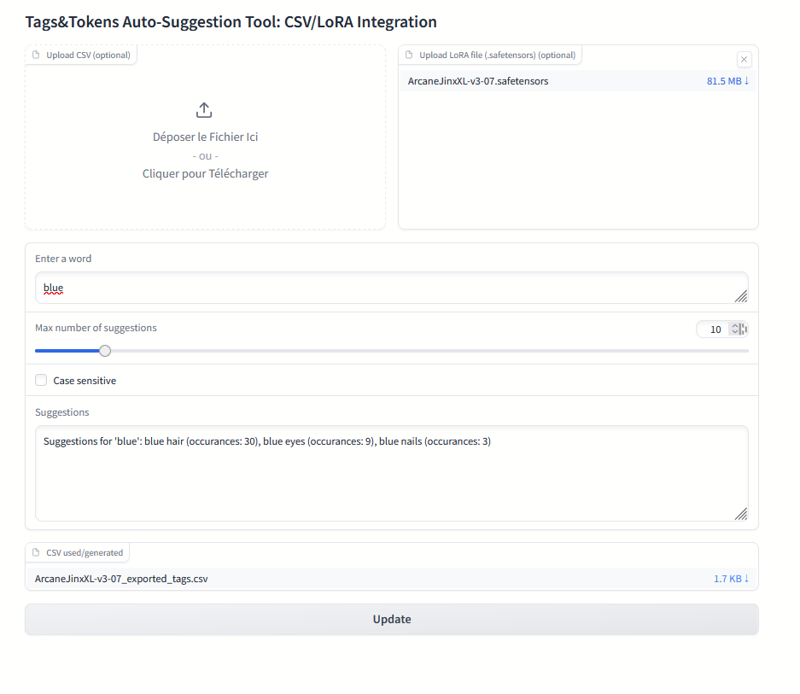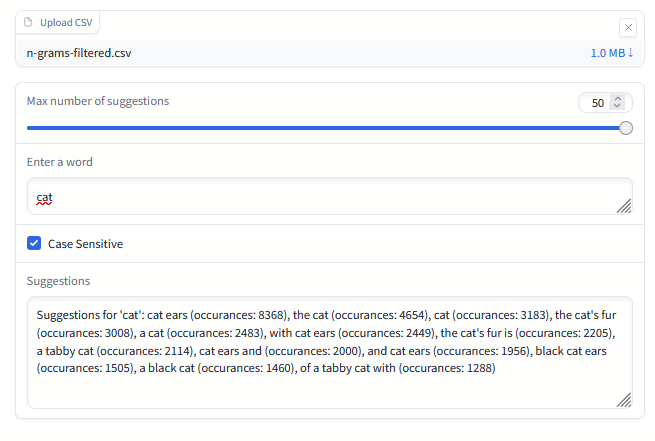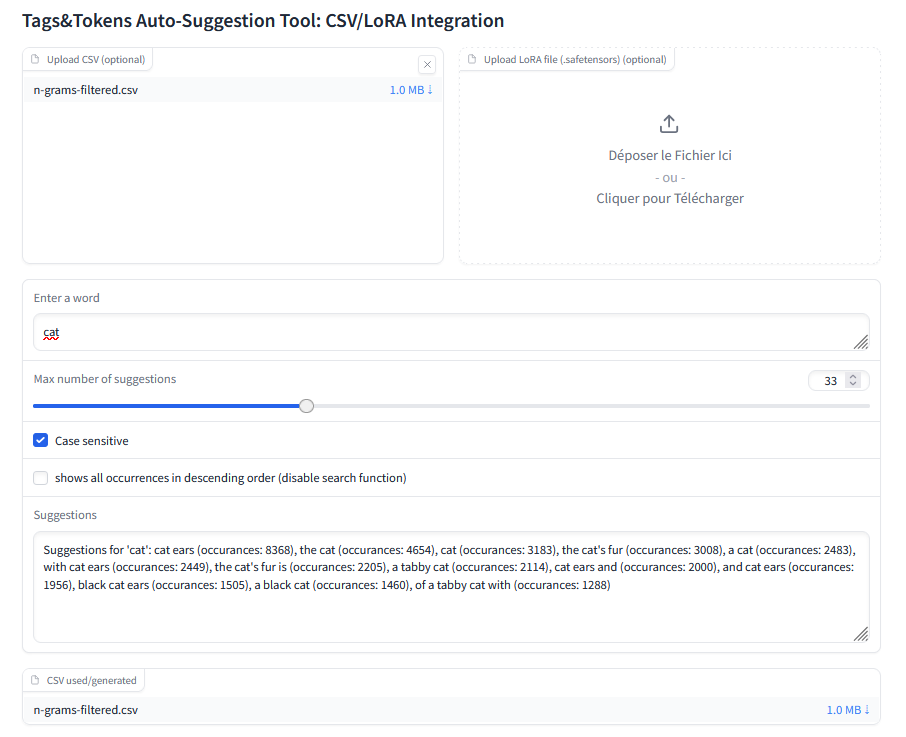I got this idea by trying out several tokens that were trained with BigASP2 on the list that nutbutter provided. But since I'm a slacker, I wanted something more automated and simple.
This helps you to better understand what to type to be sure of what you want to generate.
What's the Use ?
This tool extracts tag frequencies directly from the metadata of your LoRA (.safetensors) files and generates a CSV file with the data. It then uses that CSV to provide auto-suggestions for prompts, making it easier for you to brainstorm and refine creative inputs. Additionally, the tool includes a dynamic bar chart that visualizes tag distributions, so you can quickly see which tags are most frequent. It's perfect for anyone looking to streamline the process of tag analysis and prompt generation.
For who ?
This tool is aimed both at those who use LoRAs (tokens and tags checker for better generations) and those who create them (to have better visibility of their captioning and perhaps correct or fine tune for future training).
It's a python-based script so you'll need to install python but since mostly everyone here uses python stuff, it should be fine
There aren't too many dependencies to install, it's pretty basic.
Requirements :
gradio==4.40.0
pandas>=1.0.0
safetensors>=0.2.0Download the ZIP
Click run.bat
Import the CSV or LoRA files in UI app
Try some words or tokens. The strongest occurrences will be displayed first.
update for v2.2 :
Addition of a graph for better visibility of tags used per frequency and better support and stability for reading LoRAs (some could not be read correctly)

Small update for v2.1 :
I've added the ‘shows all occurrences in descending order’ function.
It's easier to see the biggest ones and then refine your searches.
v2 :
This new version is an all-in-one tool that integrates CSV generation from LoRA metadata with real-time auto-suggestions.
It extracts the "ss_tag_frequency" from a LoRA file (.safetensors) to create a CSV file and then uses this CSV to provide suggestions based on user input.
Users can either upload a CSV directly or generate one from a LoRA file, and suggestions are updated automatically as they type, with options for case sensitivity and setting the maximum number of suggestions.
So this version is not only linked to BigASP2 but can also be useful for better analysing and exploiting tags or tokens from other LoRAs.

Small fix for v1.1 :
added a "case sensitive" option
Uses regex word boundaries to match whole words only. Now, entering "cat" (with or without extra spaces) returns only exact matches, avoiding incorrect suggestions like "indicating". (but it's still interesting to switch between the two choices)


